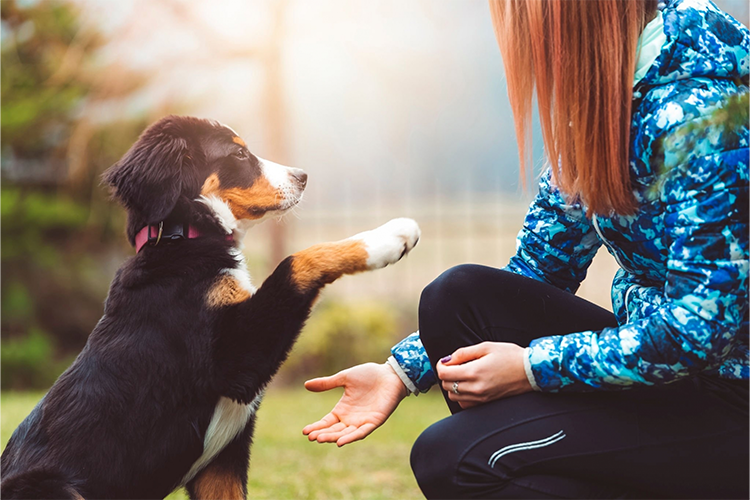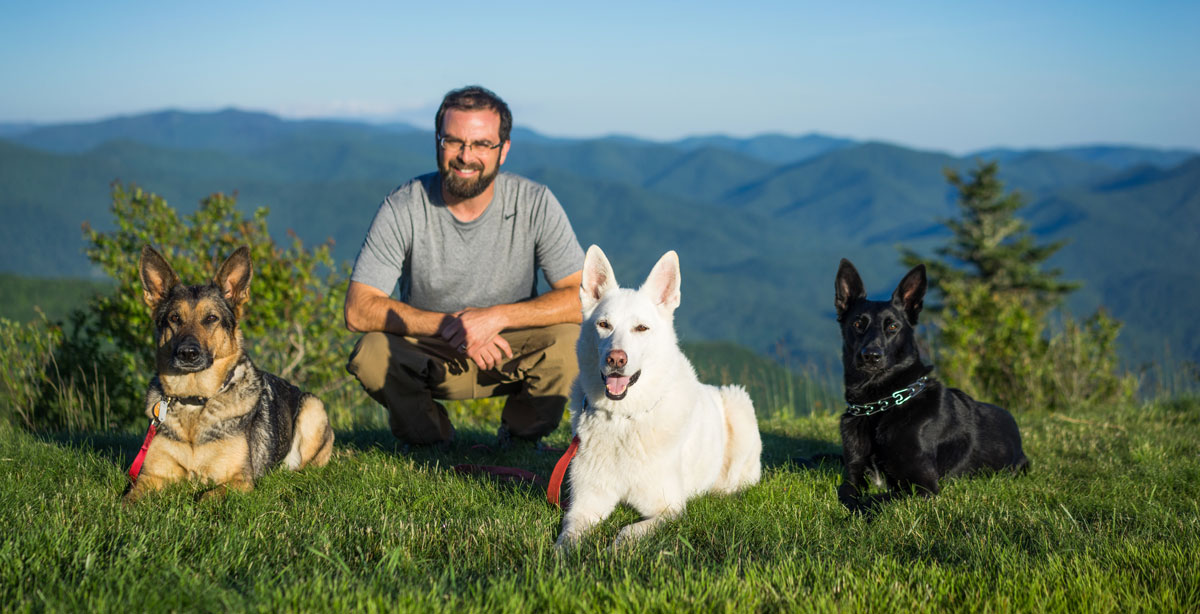Necessary Methods for Reliable Dog Training You Required to Know
Necessary Methods for Reliable Dog Training You Required to Know
Blog Article
Essential Tips for Effective Dog Training: A Guide for Pet Owners
Efficient pet training is a diverse procedure that calls for a tactical strategy tailored to both the pet dog's character and the proprietor's purposes. Key components such as establishing regular commands, employing favorable reinforcement, and facilitating early socialization play critical duties in cultivating a well-adjusted canine companion. Numerous pet dog proprietors experience difficulties that can prevent progress, leading to disappointment and uncertainty. Recognizing exactly how to navigate these challenges can dramatically enhance the training experience, eventually transforming the partnership in between owner and pet dog. What are the essential techniques that can be used to ensure success in this endeavor?
Understanding Canine Behavior
Recognizing canine behavior is necessary for efficient training and promoting an unified connection between canines and their proprietors. Pet dogs communicate mostly through body movement, articulations, and actions, making it crucial for owners to interpret these signals properly. Recognizing a pet dog's position, tail placement, and ear orientation can provide understandings into its psychological state. As an example, a wagging tail does not constantly indicate joy; it can additionally signal enjoyment or stress and anxiety.

Socializing plays a substantial function in pet dog behavior; direct exposure to numerous environments, individuals, and various other animals can dramatically affect a pet dog's character. Aspects such as breed qualities and specific character ought to guide training methods, as some types may have certain behavioral traits that demand customized methods. By comprehending these elements, owners can produce an encouraging environment that encourages favorable actions, leading to effective training end results and a much deeper bond with their pets.
Establishing Constant Commands
Effective communication with your canine starts with establishing constant commands. This fundamental component of training is essential for promoting understanding between you and your family pet. Consistency in the commands you make use of guarantees that your pet can accurately associate certain words or phrases with the wanted behaviors.
When choosing commands, pick clear, distinctive words that are very easy to claim and separate from each other. Stay clear of using similar-sounding commands that may perplex your canine. As an example, making use of "rest" and "remain" is proper, however "sit" and "struck" can lead to misconceptions.
Additionally, maintain the exact same tone and quantity for each and every command. Dogs are delicate to singing cues, so differing your tone can produce complication.
It is just as vital to make certain that all family participants get on the same page pertaining to the commands made use of. A united front in command usage will stop combined signals and enhance the learning procedure.
Favorable Support Methods
The power of positive support in pet training depends on its capability to urge wanted behaviors via benefits and appreciation. This strategy is grounded in the concept that behaviors adhered to by positive end results are more probable to be duplicated. By including positive reinforcement into your training regimen, you can properly form your dog's habits in a useful way.
To execute favorable reinforcement, it's vital to identify what motivates your pet dog, whether it be treats, playthings, or spoken appreciation. When your canine executes a wanted activity, such as resting on command, instantly compensate them with a reward or love. This organization between the command and the positive outcome enhances their understanding.
It's critical to timing the rewards appropriately; delivering the support within secs of the wanted actions helps your pet dog make the link (dog training). In addition, consistency is key-- make sure that all member of the family make use of the same commands and reward systems to prevent confusion

Slowly, you can decrease the frequency of treats as your pet learns the behavior, transitioning to commend or intermittent rewards. This technique not just fosters a strong bond between you and your dog yet likewise advertises a positive discovering environment, making educating sites a pleasurable experience for both.
Socialization and Communication
Constantly subjecting your pet to a selection of atmospheres, individuals, and other pets is essential for their social advancement. Socializing ought to start early, preferably during the important window of 3 to 14 weeks, when puppies are most receptive to new experiences. However, older pets can likewise benefit from recurring socializing initiatives.
Introduce your dog to different settings, such as parks, pet-friendly shops, and urban areas. This direct exposure helps them adapt to different stimulations, minimizing anxiousness and concern actions. Encourage positive communications with other pets and individuals, making sure that these encounters are risk-free and regulated to cultivate self-confidence.
Make use of organized playdates with well-mannered canines, as go now this can improve your pet dog's social abilities and instruct them suitable habits. Obedience courses and training sessions additionally give superb opportunities for socialization, enabling your pet to connect with others in a monitored atmosphere.
Display your pet's body movement during communications, as this will certainly help you determine their comfort degree. Slowly raise direct exposure to even more difficult circumstances while making sure that each experience is favorable. A well-socialized pet is most likely to show well balanced behavior, making them a joy to have in any type of setup.
Dealing With Typical Training Challenges
Every pet proprietor will find more info certainly come across training obstacles eventually, regardless of their dog's age or socializing level. Recognizing typical concerns such as stubbornness, distractions, and terror can aid in establishing effective approaches for improvement.

Progressively introduce diversions as the pet dog comes to be more competent in commands. Short, regular training sessions are likewise efficient in maintaining interest.
Fearfulness can impede a canine's understanding procedure. Progressive desensitization to the resource of worry, coupled with favorable support, can help alleviate anxiousness. Perseverance is critical; never ever require a pet dog into a situation that causes distress, as this might intensify the problem.
Inevitably, understanding and resolving these common obstacles with a structured technique will certainly promote a much more productive training experience, reinforcing the bond in between dog and proprietor while promoting effective learning.
Verdict
In summary, effective canine training counts on a detailed understanding of canine actions, the establishment of consistent commands, and the application of positive support strategies. Socialization plays a vital duty in creating well-adjusted animals, while resolving common training difficulties calls for perseverance and adaptability. By applying these important approaches, pet owners can foster a solid bond with their pets and promote desirable actions, inevitably bring about a harmonious connection between human beings and their canine friends.
Recognizing pet habits is crucial for effective training and fostering a harmonious partnership between canines and their proprietors.Socializing plays a significant duty in pet dog habits; exposure to various environments, individuals, and various other animals can significantly impact a pet's character.The power of positive support in dog training lies in its capacity to urge wanted actions through rewards and appreciation. By including positive reinforcement into your training regimen, you can properly shape your pet dog's habits in a positive fashion.
In recap, effective pet dog training relies on a thorough understanding of canine behavior, the facility of constant commands, and the application of positive support techniques.
Report this page